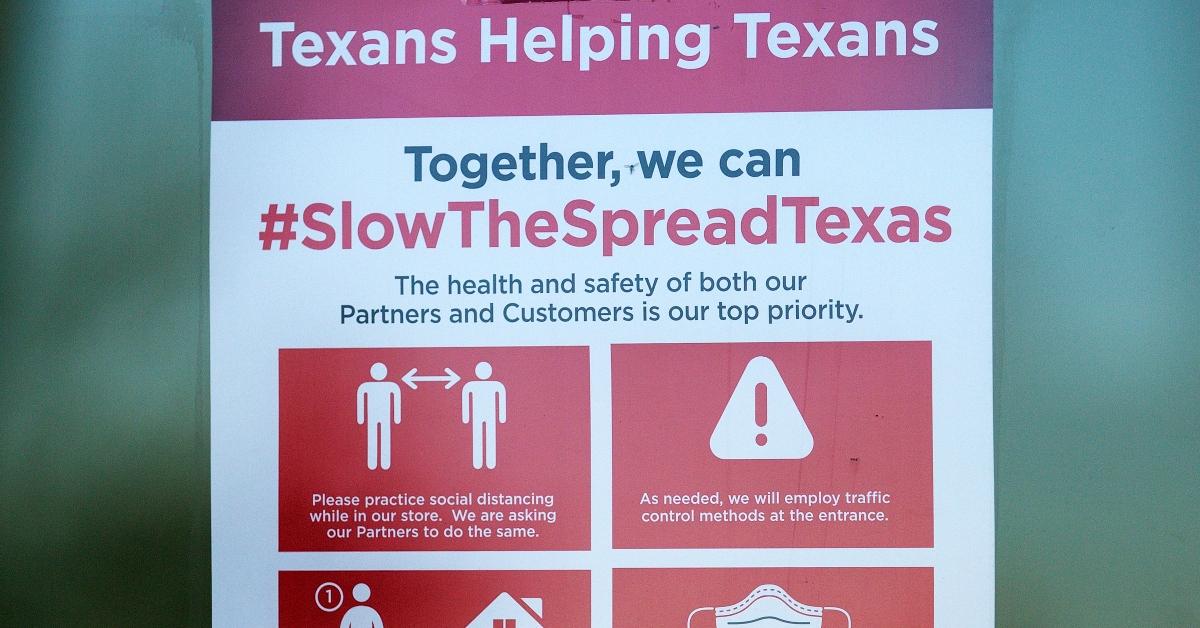States Struggle With Monoclonal Antibodies Shortage Amid Omicron Surge
Hospitals in the U.S. are struggling with the increase of COVID-19 patients. Now, they're dealing with a monoclonal antibody shortage.
Dec. 28 2021, Published 12:12 p.m. ET

Only one monoclonal antibody treatment of the three used to treat COVID-19 is effective against the omicron variant of the COVID-19 virus, and it’s in short supply. Hospitals around the country are struggling with the increase of COVID-19 patients and now they have to deal with a monoclonal antibody shortage.
On Dec. 27, the Texas DSHS (Department of State Health Services) stated that regional infusion centers in Austin, El Paso, Fort Worth, San Antonio, and The Woodlands had exhausted their supply of sotrovimab, which is the only monoclonal antibody that's effective against the omicron variant.

The situation is due to the national shortage of sotrovimab from the federal government, which controls the distribution of monoclonal antibodies, the Texas DSHS said in a statement. The state agency doesn’t expect to get more sotrovimab until January.
Most of the new COVID-19 cases are the omicron variant.
According to DSHS data, the number of new COVID-19 cases surged over the Christmas holiday, going from 9,000 on Dec. 20 to almost 15,100 on Dec. 27. Now, the omicron variant accounts for 90 percent of new cases, DSHS says.
Statistics from Our World Data show that just about 57 percent of Texans are fully vaccinated against COVID-19.
“Everyone should protect themselves from severe COVID-19 by getting vaccinated as soon as possible, getting a booster as soon as they are eligible, and continuing to take precautions to prevent being exposed to the virus that causes COVID-19 and spreading it to others,” the DSHS said in a statement.
Other states are also struggling with monoclonal antibody shortages.
Texas isn’t the only place dealing with the sotrovimab monoclonal antibody shortage. Hospitals in Oklahoma are also feeling the pinch. Just a little over 53 percent of Oklahoma residents are fully vaccinated against COVID-19.
"The state is letting us know the supply chain down to the federal government to them has been bottlenecking quite a bit," Paul Wright, with SSM Health in Oklahoma City, told KOCO 5. "There's not very much of that monoclonal antibody. Not much of it is available."
Some hospitals in New York and New Jersey are also reportedly running low on their supply of sotrovimab.
The federal government sent out about 55,000 sotrovimab doses earlier in December after pausing shipments to “ensure a more balanced portfolio of monoclonal antibody products and to allow more time to assess data regarding the effectiveness of sotrovimab against the Omicron variant.”
There are three monoclonal antibodies used to treat COVID-19. Sotrovimab is made by GlaxoSmithKline (GSK) and Vir Biotechnology (VIR) and it's the only effective antibody for treating omicron cases. Regeneron and Eli Lilly make the other monoclonal antibody treatments.
How has the shortage impacted monoclonal antibody stocks?
Sotrovimab makers GlaxoSmithKline and Vir Biotechnology both saw an increase in their stock prices after GSK released data on Dec. 7 that the drug was effective against all mutations of the omicron variant. Over the past month, GSK shares have increased by 6.55 percent.
VIR shares are also up slightly and got an endorsement from CNBC’s Mad Money host Jim Cramer.
“They may have something that could be very, very good against omicron. It’s very early, very early. But I like it. I think you should own the stock,” Cramer said about VIR during his Mad Money show on Dec. 2.
